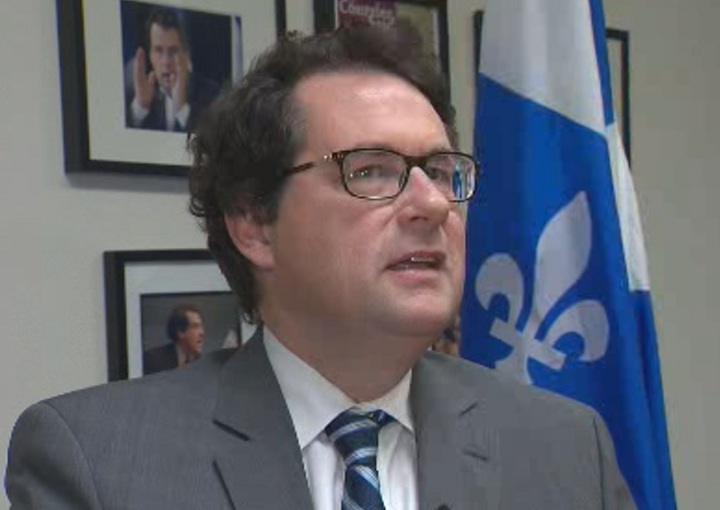QUEBEC CITY — The ‘No’ victory in Scotland reverberated all the way to Quebec, where Parti Québécois troops were down and out.

PQ interim leader Stéphane Bédard was expected to address the media Friday morning.
But when results came in, he chose instead to issue a laconic press release and send MNA Bernard Drainville to the front.
“Disappointed. I think in the end the fear factor played a role.”
The Parti Québécois had hoped secession in Scotland would lead to a resurgence of the sovereignist movement in Quebec.
MNAs trumpeted this week a ‘Yes’ vote would be a “shining example” for the province. Now, Drainville says, lessons can be drawn from the campaign.
READ MORE: Supporters of Quebec independence watching Scotland results
“Their level of preparation before having this referendum is an important lesson I think we should draw as Quebec independentists,” said Drainville on Friday.
“They had a white paper of 670 pages, ten months before the vote last November,” he noted.
“A big document that answered a lot of the questions Scottish people had with regards to independence.”
Watch: Scotland referendum: Lessons from Quebec
Laval University political scientist Louis Massicotte said he agrees the independence movement was well-prepared in Scotland.
“The conditions were excellent for a clean-cut secession and the people refused, so this is highly significant in my view,” Massicotte told Global News, adding Scots had good reasons to vote no.
“People didn’t see an obvious economic advantage in seceding from Britain, that’s clear.”
Watch: Quebecers eye Scotland independence vote
For Quebec premier Philippe Couillard, the vote against separation proves Scots live in modern times and realize, just as Quebecers do, that together is better.
“There’s a strong feeling of identity which I think Scots and Quebecers have in common, and at the same time, the desire to belong to a larger political organization,” Couillard said.
The Premier concluded with this message for the four PQ MNAs currently visiting Scotland: “It’s time for them to come home and work on real issues.”


Comments